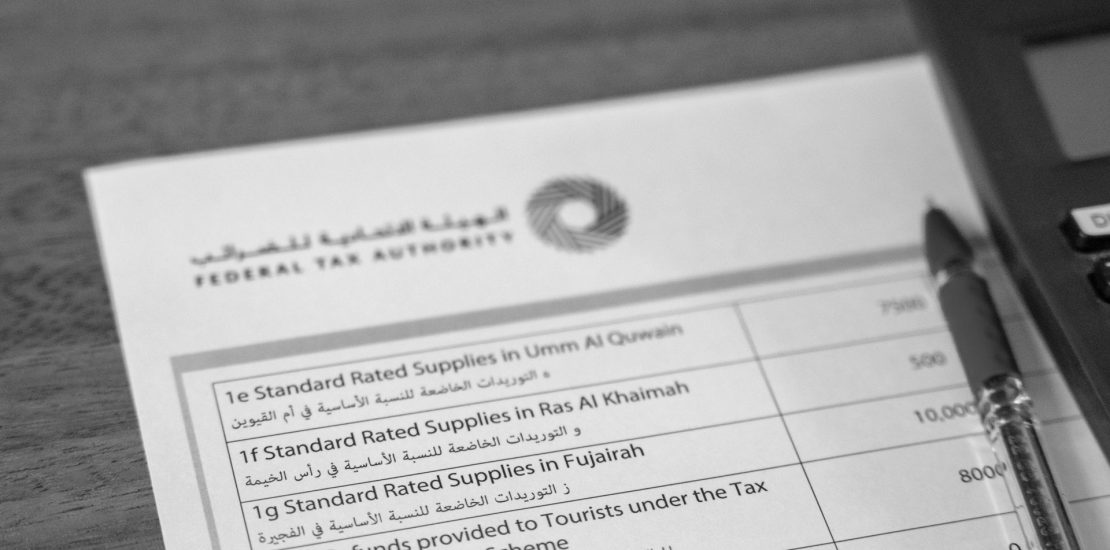UAE Updates Tax and E-Invoicing Laws
- 01.11.2024
- Posted by: Malavika Kolera
- Categories: Tax, Dubai

The UAE has announced updates to tax and e-invoicing regulations, aiming to streamline business operations and foster a more efficient tax system. Federal Decree-Law No. 17 of 2024 and Federal Decree-Law No. 16 of 2024 introduce a new framework for tax compliance, shifting toward a fully digital approach that enhances both standardization and transparency in tax procedures. For businesses in the UAE, including those looking to establish a presence in Dubai, these changes will bring both new requirements and new opportunities.
Understanding the New Tax and e-invoicing Laws
The new decrees target two main areas of tax reform:
- Federal Decree-Law No. 17 of 2024: Focuses on tax procedures, paving the way for the e-invoicing system by defining its framework and enabling the Ministry of Finance to determine specific requirements and timelines.
- Federal Decree-Law No. 16 of 2024: Revises existing Value Added Tax (VAT) provisions, including definitions for electronic invoices and credit notes, to ensure compliance with the new digital standards.
These amendments signal the UAE’s commitment to digital innovation and reflect international best practices, aiming to improve efficiency in tax reporting and compliance for all business sectors.
Key Benefits of the e-invoicing System
The e-invoicing system introduced by the new legislation offers several advantages for both businesses and the UAE government:
Automated Invoicing and Tax Reporting: The e-invoicing system will standardize invoicing practices, enabling businesses to automate invoicing and seamlessly report to the Federal Tax Authority (FTA).
Real-Time Data Exchange: Businesses and government bodies can instantly exchange invoices through Accredited Service Providers (ASPs), ensuring immediate access to accurate tax data.
Enhanced Compliance and Security: With ASPs securely transmitting data to the FTA, the system aligns with international standards (like the OpenPeppol protocol), minimizing errors and boosting compliance.
For companies in Dubai and the broader UAE, these changes mean greater transparency in tax documentation and a simplified approach to record-keeping, which can ultimately reduce administrative burdens and improve financial accuracy.
Implementation Strategy: A Phased Roll-Out
The UAE Ministry of Finance has adopted a phased implementation strategy for e-invoicing to ensure a smooth transition. Businesses subject to the system will need to comply with specific requirements, including:
Electronic Invoice Issuance: Invoices and credit notes must be generated electronically.
Data Archiving: Electronic invoice data must be archived to meet the updated record-keeping standards.
Compliance with Roll-Out Dates: The Ministry of Finance will release further guidance on timelines and entities affected by each phase of the roll-out, allowing businesses ample time to prepare.
This phased approach, supported by active stakeholder engagement, aims to maximize the benefits of digital transformation for all sectors.
How TME Services Can Support Your Business
The UAE’s move to digitalize tax and invoicing processes through Federal Decree-Laws No. 17 and No. 16 of 2024 is a forward-thinking step toward a more transparent, efficient, and innovative economy.
By aligning with international standards, the e-invoicing system simplifies tax compliance and also enhances the overall ease of doing business in the UAE.
For companies looking to expand or establish a base in Dubai, adapting to these changes will be a regulatory requirement.
Our comprehensive services are designed to support you every step of your business journey in the UAE:
- Company Formation: We guide you through all aspects of setting up your company, whether in a free zone or on the mainland, ensuring you choose the best option for your business.
- Visa and Emirates ID Services: We streamline the process of securing visas and Emirates IDs for you and your employees, allowing you to focus on your business operations.
- Accounting: Our team ensures your business stays compliant with local financial regulations, which is crucial for maintaining good standing in Dubai’s business community.
- Tax: We help manage Dubai’s tax environment, ensuring your business remains compliant while optimizing your tax position.
- Business Consulting: Leveraging our deep understanding of Dubai’s market, we provide valuable insights and help you develop effective strategies to succeed.
Visit our services page to learn more about everything we do.
Share the article
-
21 Feb 2026 DubaiUAE Non-Oil GDP Grows 6.1%
-
21 Feb 2026 TaxUAE Tax Invoicing Mandatory Requirements
-
21 Feb 2026 DubaiMoHRE Completes Consultation on the Alternative End-of-Service Savings Scheme
-
13 Feb 2026 TaxUAE Ministry of Finance Designates VARA as Competent Authority Under CIT Framework
-
13 Feb 2026 TaxUAE Cabinet Decision Exempts Certain Sports Entities from Corporate Income Tax